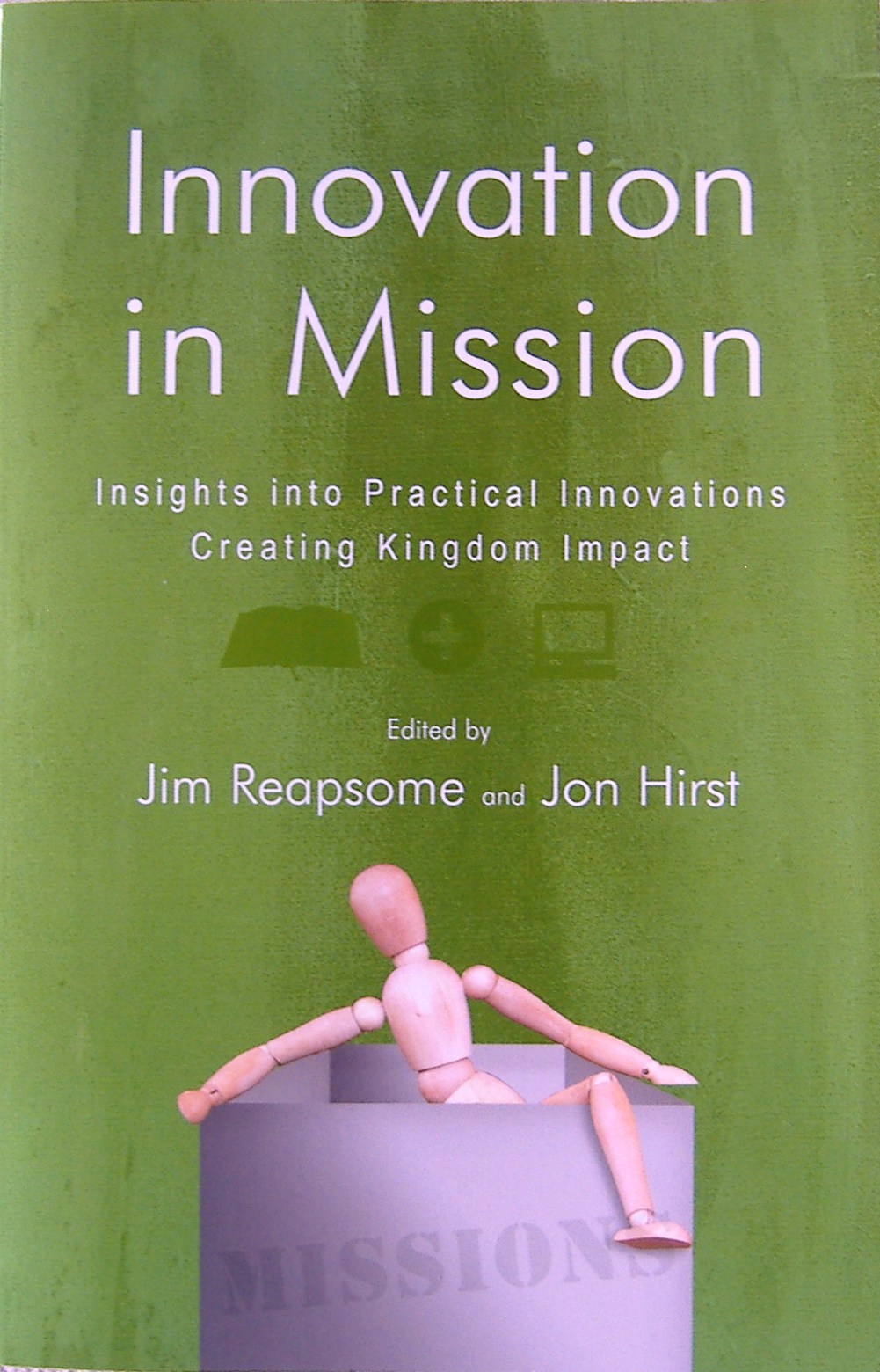|
|
ReaInno 07-06-053 Innovation
in Mission: Insights
into Practical Innovations Creating Kingdom Impact Jim Reapsome and Jon Hirst, eds. |
|
Jon is Director of Communications for HCJB Global and a communications consultant to Christian organizations. Jim Reapsome served as the editor of Evangelical Missions Quarterly and World Pulse for more than 33 years. Several missions practitioners provide a status update on various aspects of missions, such as local church involvement, business as missions, member care, short-term missions, training writers, content management, media, electronic training and on-line learning, and theological education overseas. Articles are generally more detailed than required for a layman's overview, but less detailed than would be needed for a practitioner in the subject area. "While vision and core values don't change, everything else is open for innovation." "The most important things in life never change." We must keep our unchanging vision in focus while adjusting to changing circumstances by developing changing programs and methods. "We don't worship innovation. So, if the innovation does not contribute to the vision, we simply move on. But neither do we worship programs." (Foreword by Jim Plueddemann) Jon Hirsh suggests three types of innovators: conceptual (trends and changes in thinking), pragmatic (solutions and practical applications), and a combination of both, those who apply innovative concepts in innovative ways. He calls it holistic innovation. (4-5) "Local churches are defining who they are and who they want to become by adopting vision and mission statements based on their strengths and uniqueness. Many congregations desire to apply these same qualities to their missions endeavors." (12) "In growing numbers, churches are seeking one or more strategic involvements geared toward a goal they feel will have major kingdom impact." (13) Clusters of U.S. churches are working with coalitions of organizations and African churches in a combined assault on AIDS. (15) Organizations like the e3 Partners Ministry pair teams of U.S. Christians with national churches to birth embryonic new church plants that will be nurtured by the national churches. (17) Mission agencies like SIM are applying their cultural expertise to help U.S. churches reach out to local ethnic communities. (21) Individuals in Kingdom Business have two major markets: the secularized professionals who ignore the Gospel as superstition and countries where professional evangelism is not allowed. "The missionary starts at the mission end of the spectrum and goes into business; the businessperson starts at the business end and goes into mission. Their constituencies differ and, possibly, their business and mission strategies." "In a kingdom business, the main purpose is to expand the kingdom of God." (32) "In a kingdom business riddles are solved by prayer and by God's power." (35) "The very term kingdom business has built into it a conflict between kingdom interests and business interests in our imperfect world." "If the conflict becomes irresolvable, the kingdom business partners should know where their choice lied and count the cost in anticipation." (36) "In the broadest sense, member care describes what a mission organization does to care for its members." (39) "The traditional models of care from the West are mostly out of bounds financially for South Asians." New methods are being developed. (43) A training model includes master care (spiritual growth), self-care (taking care of ourselves), one another care, pastoral care, and finally clinical care. (47) The greatest asset of short-term missions is the ability to swiftly put missionaries on the field to do whatever needs to be done. (52) Short-term missions usually consists of non-professional volunteers. (53) Perhaps 3700 agencies, 1000 schools, and 35,000 churches all send short-termers. (55) Going 5000 miles to help the friend who emails me every week seems reasonable to many young people. (56) The "U.S. Standards of Excellence in Short-Term Mission" are very helpful for doing mission trips well. (www.STMstandards.org) (57) Three changes we can expect: 1. "Fields will limit their short-terms to proven groups; 2. Schools will offer formal, for-credit academic training in short-term mission methods; and 3. New short-term mission networks will bypass traditional networks in attendance and membership numbers," (59) "One of the most strategic ministries today is getting local Christian writers published in the hard places of the world." In some parts of the world, 80% of the Christian literature is translated from a foreign language. (68) "In some respects, print has the potential to penetrate resistance and defenses better than any other medium." (per Tim Stafford). It's portable, silent, and therefore, very private. (80) Developing content taxonomy and infrastructure within organizations so they can keep track of what they have written and what they know is a challenge. (86) Media "predictably and clearly influence the behavior of groups but exert a vague and unpredictable influence over specific individuals." "The mindset of the media missionary also recognizes the media as the environment of our minds and souls." (105) A major challenge in China and elsewhere is the lack of systematic training of pastors and leaders. A number of individuals and groups are working to develop educational tools and secure methods using CD-rom, thumb drives, and the web along with new curricula, methods, and content for on-going learning for both national and expatriate Christian workers. |
|
* * * * * *
